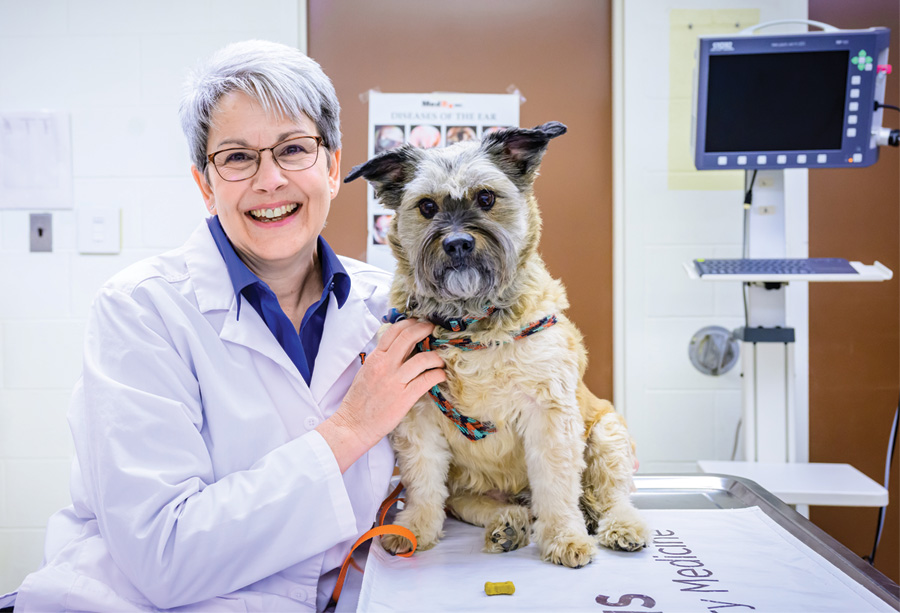Dr. Topulos is a clinical assistant professor in the small animal surgery service.
Tell us about your background.
I was born and raised just outside of Boston, Mass. (So, yes, I am a die-hard Red Sox fan!) I completed my undergraduate degree at Georgetown University, where I studied ancient art and architecture in addition to traditional pre-veterinary course work. I got my DVM at Tufts, completed my small animal rotating internship at North Carolina State University, then headed back to Tufts for my surgical residency.
What draws you to surgery?
I think one of the coolest things about surgery is that we sometimes get to cure our patients. I love that surgery is such an interactive specialty and that the rewards of our efforts are often realized quite quickly. I also like the broad scope of the field. You naturally get to collaborate with so many other specialties. I was always drawn to surgery as a veterinary student but enjoyed the other rotations my clinical year as well, so this gives me the best of both worlds.
Tell us about a favorite case of yours.
The one that immediately jumps to mind is that of a little dog named Rudy. Rudy had a terrible wound that seemingly worsened no matter what people tried. I always tell owners that wound therapy is a rollercoaster, that no matter if we are doing everything to the best of our abilities, we can take steps backward with some frequency.
The lows of the rollercoaster not only affected Rudy’s healing, but also the morale of the team and the family, to the point where euthanasia was seriously considered. However, through endless creativity of the team, and Rudy’s incredibly sweet nature through it all, he healed!
The owner thanked us for “not giving up on him” because, when Rudy finally went home, he was “once again doing his happy dance.”
On the toughest of days I think of Rudy and his story reminds me why I do what I do.
What are your special interests?
I love working with other departments. For me, this particularly applies to anesthesia and oncology. I am very passionate about patient comfort. It is undoubtedly scary for our patients to be in the hospital and undergo surgery, so I think the best thing we can do is alleviate their pain. I am currently in the early phases of a collaborative project to look at patient comfort when different analgesic protocols are used.
Furthermore, I have always loved oncology. Sometimes surgery can serve as a cure, and sometimes it is just a piece of the puzzle. My ultimate goal is to get further training in surgical oncology, so that I can better serve this patient population.



